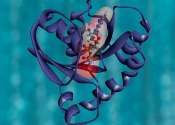Scientists crack how primordial life on Earth might have replicated itself
Scientists have created a new type of genetic replication system which demonstrates how the first life on Earth—in the form of RNA—could have replicated itself. The scientists from the Medical Research Council (MRC) Laboratory ...








